Unleashing the Power Within: How Probiotics Enhance Nutrient Absorption in Dogs
For every dog owner, witnessing their furry companion brimming with health and vitality is the ultimate reward. But did you know that even the most meticulously chosen dog food might not be reaching its full potential if your pup’s body isn’t absorbing nutrients effectively? This is where the fascinating world of probiotics comes in, offering a natural solution to unlock a world of optimal health for your canine friend.
This comprehensive guide delves deep into the intricate dance between probiotics, nutrient absorption, and your dog’s digestive system. We’ll explore the science behind gut health, how probiotics work their magic, and the telltale signs that your dog might benefit from this powerful supplement. Buckle up, pet parents, because we’re about to embark on a journey that will transform the way you think about your dog’s well-being!
The Digestive Symphony: A Deep Dive into Nutrient Absorption
Imagine your dog’s digestive system as a bustling orchestra, each part playing a crucial role in the beautiful symphony of nutrient absorption. The journey begins in the mouth, where food is broken down by chewing and enzymes in saliva. This initial breakdown prepares the food for the main stage – the stomach. Here, powerful gastric juices further break down proteins and fats, while churning muscles mix everything into a soupy concoction called chyme.
The next stop is the small intestine, the true maestro of nutrient absorption. Lined with millions of tiny finger-like projections called villi, the small intestine provides a massive surface area for maximizing nutrient uptake. Specialized cells within the villi absorb carbohydrates, proteins, fats, vitamins, minerals, and water, passing them into the bloodstream for distribution throughout the body. This intricate process is facilitated by various enzymes and transporters embedded in the intestinal wall.
Finally, the unabsorbed components reach the large intestine, where water is extracted and the remaining waste material is formed into stool for elimination. A healthy digestive system ensures a smooth and efficient flow through this intricate pathway, guaranteeing optimal nutrient absorption for your dog’s overall well-being.
The Gut Microbiome: The Unsung Hero of Digestion
Now, let’s introduce the unsung hero of this digestive symphony – the gut microbiome. This complex ecosystem houses trillions of microorganisms, including bacteria, fungi, and archaea. These tiny residents play a vital role in maintaining a healthy digestive tract and facilitating nutrient absorption.
The Good, the Bad, and the Balanced:
- Beneficial Bacteria: These friendly microbes are like the backup singers in the digestive orchestra. They aid in breaking down complex carbohydrates, produce essential vitamins like B12 and K, and compete with harmful bacteria for space and resources.
- Pathogenic Bacteria: Think of these as the rogue elements in the orchestra, causing discord and disrupting the harmony. Their presence can lead to inflammation, diarrhea, and inefficient nutrient absorption.
- Balanced Microbiome: The ideal scenario is a well-rehearsed orchestra with the good bacteria taking center stage. This balanced gut microbiome fosters optimal digestive health and ensures your dog gets the most out of its food.
When Harmony is Lost: The Impact of Gut Imbalance on Nutrient Absorption
Just like a discordant orchestra struggles to produce beautiful music, an imbalanced gut microbiome disrupts the delicate process of nutrient absorption. Here’s how:
- Inflammation: An overgrowth of harmful bacteria can irritate and inflame the intestinal lining, hindering its ability to absorb nutrients.
- Altered Barrier Function: The gut lining acts as a selective barrier, allowing the passage of essential nutrients and keeping out harmful substances. When the microbiome is imbalanced, this barrier function can weaken, leading to leaky gut syndrome. This allows undigested food particles and toxins to enter the bloodstream, further compromising nutrient absorption.
- Reduced Enzyme Production: Beneficial bacteria contribute to the production of enzymes essential for breaking down complex molecules into their absorbable forms. A decline in these bacteria can lead to incomplete digestion and hinder nutrient uptake.
The consequences of impaired nutrient absorption can manifest in various ways, impacting your dog’s overall health. These signs might include:
- Chronic diarrhea or constipation: This indicates difficulty processing and absorbing nutrients from food.
- Vomiting: This can be a sign of irritation or inflammation in the digestive tract, hindering nutrient absorption.
- Weight loss despite adequate food intake: If your dog isn’t properly absorbing nutrients, it won’t be able to utilize the energy from food, leading to weight loss even with normal eating habits.
- Dull coat and skin problems: Deficiencies in essential vitamins and fatty acids can lead to a dry, itchy coat and skin issues.
- Lethargy and fatigue: When the body doesn’t receive the nutrients it needs for energy production, lethargy and fatigue can set in.
You may also be interested in reading the comprehensive guide of How Natural Probiotics Improve Digestive Health in Dogs: A Comprehensive Guide
5,000+ People Saw Related Offers
- Pamper your pet! Discover natural flea & tick control, organic food, and more.
- Healthy pets start here! Shop organic food, natural supplements, & eco-friendly toys.
- Give your pet the best! Explore our range of natural products & accessories.
- Protect your furry friend! Find effective flea & tick control solutions now.
- Nourish your pet naturally! Discover delicious organic food options.
- Boost your pet’s health! Try our natural supplements for optimal wellness.
- Happy pets, happy you! Shop eco-friendly toys & accessories today.
Sponsored Contents ⓘ | Advertise Now
The Probiotic Revolution: Restoring Balance and Enhancing Absorption
Here’s where the magic of probiotics truly shines. These beneficial bacteria can help restore the delicate balance of your dog’s gut microbiome, creating an environment that is conducive to optimal nutrient absorption.
How Probiotics Work Their Magic:
- Population Boost: Probiotics introduce a healthy dose of beneficial bacteria, bolstering their numbers and helping them outcompete harmful microorganisms.
- Improved Digestion: Certain strains of probiotics produce enzymes that aid in the breakdown of complex carbohydrates, proteins, and fats, facilitating digestion and nutrient release.
- Enhanced Nutrient Uptake: By improving the gut lining’s integrity, probiotics can enhance the absorption of essential nutrients into the bloodstream.
- Strengthened Immune Response: A healthy gut microbiome is essential for a robust immune system. Probiotics support immune function, helping your dog fight off infections and maintain overall well-being.
Choosing the Right Probiotic for Your Dog:
With a plethora of probiotic options available, selecting the right one for your dog can be overwhelming. Here are some key factors to consider:
- Strain Specificity: Not all probiotic strains are created equal. Look for products containing strains that have been clinically studied for their benefits in dogs, such as Lactobacillus acidophilus, Bifidobacterium animalis, and Enterococcus faecium.
- CFU Count: This refers to the number of live microorganisms in each dose. While a higher CFU count is generally desirable, it’s essential to choose a product that aligns with your dog’s specific needs.
- Quality and Sourcing: Opt for reputable brands that use high-quality ingredients and source their probiotics from reliable suppliers.
- Dog’s Specific Needs: Consider your dog’s age, breed, and any underlying health conditions when selecting a probiotic. For instance, puppies might require different strains than adult dogs or dogs with digestive sensitivities.
Signs Your Dog Might Benefit from Probiotics:
While probiotics can be beneficial for dogs of all ages and breeds, certain signs might indicate that your furry friend could particularly benefit from this supplement:
- Digestive Issues: Chronic diarrhea, constipation, or gas can be indicative of an imbalanced gut microbiome.
- Skin and Coat Problems: Dull coat, itching, or recurrent skin infections might be linked to nutrient deficiencies and an unhealthy gut.
- Food Sensitivities or Allergies: Digestive discomfort and allergic reactions can sometimes be attributed to gut imbalances.
- Slow Weight Gain or Poor Appetite: If your dog is struggling to gain weight or shows a lack of interest in food, it could be due to poor nutrient absorption.
- Weakened Immune System: Frequent infections or a tendency to catch illnesses might be a sign of a compromised immune system, which can be linked to gut health.
Incorporating Probiotics into Your Dog’s Diet:
There are several ways to introduce probiotics into your dog’s diet:
- Probiotic Supplements: These come in various forms, including capsules, powders, and chewable treats. Follow the manufacturer’s instructions for dosage and administration.
- Probiotic-Enriched Dog Food: Some commercial dog foods contain added probiotics. Look for products that list specific probiotic strains and their CFU count.
- Fermented Foods: While not as common for dogs as for humans, certain fermented foods like yogurt (plain, unsweetened) can provide a natural source of probiotics. Always consult your veterinarian before introducing new foods to your dog’s diet.
Monitoring Your Dog’s Response:
When introducing probiotics to your dog’s routine, it’s essential to monitor their response. Some dogs might experience mild digestive upset initially, but this should subside as their gut microbiome adjusts. If your dog’s condition worsens or if you have any concerns, consult your veterinarian.
The Probiotic Promise: A Brighter Future for Your Dog
By understanding the intricate relationship between probiotics, nutrient absorption, and overall gut health, you can empower yourself to make informed decisions about your dog’s well-being. By incorporating probiotics into their diet, you’re investing in a healthier, happier, and more vibrant future for your beloved companion.
Remember, while probiotics offer numerous benefits, they should be considered as a complementary approach to a balanced diet and regular veterinary care. By working closely with your veterinarian, you can create a personalized plan to optimize your dog’s health and unlock their full potential.
You may also be interested in reading the comprehensive guide of How Natural Probiotics Improve Digestive Health in Dogs: A Comprehensive Guide
Frequently Asked Questions About Probiotics for Dogs
1. Are probiotics safe for dogs?
Yes, probiotics are generally considered safe for dogs when used appropriately. However, it’s essential to choose a high-quality product and consult with your veterinarian before starting any new supplement, especially for dogs with underlying health conditions.
2. Can I give my dog human probiotics?
While some human probiotics may contain strains beneficial to dogs, it’s generally not recommended to share human supplements with your pet. Dog-specific probiotics are formulated with the specific needs of canine digestive systems in mind.
3. How long does it take for probiotics to work?
The time it takes for probiotics to show noticeable benefits can vary depending on your dog’s individual circumstances. Some dogs may experience improvements within a few days, while others might require several weeks. Consistency is key, so continue administering the probiotic as directed.
4. Can probiotics help with dog allergies?
While more research is needed, some studies suggest that probiotics may help manage certain allergic reactions in dogs by supporting gut health and immune function. It’s essential to work closely with your veterinarian to develop a comprehensive allergy management plan.
5. Can I give my dog probiotics while on antibiotics?
Antibiotics can disrupt the gut microbiome, so it’s generally recommended to wait a few days after finishing a course of antibiotics before starting probiotics. However, always consult with your veterinarian for specific guidance.
6. Can puppies benefit from probiotics?
Yes, puppies can benefit from probiotics to support their developing immune systems and digestive health. However, choose a probiotic specifically formulated for puppies and consult with your veterinarian for appropriate dosage.
7. Can I give my dog too many probiotics?
While it’s unlikely to overdose on probiotics, excessive consumption might cause mild digestive upset in some dogs. Follow the recommended dosage on the product label and consult your veterinarian if you have any concerns.
8. Are probiotics a cure-all for digestive problems?
While probiotics can be beneficial for many dogs with digestive issues, they are not a cure-all. It’s essential to address the underlying cause of the problem with the help of your veterinarian. Probiotics can be used as a supportive therapy alongside other recommended treatments.
9. Can I give my dog yogurt as a source of probiotics?
While plain, unsweetened yogurt can contain some beneficial bacteria, it’s not a reliable source of probiotics for dogs. The amount and type of probiotics in yogurt can vary, and it may not be suitable for all dogs.
10. How long should I give my dog probiotics?
The duration of probiotic supplementation depends on your dog’s specific needs and the reason for using them. Some dogs may benefit from long-term use, while others might only need a short-term course. Consult with your veterinarian to determine the best approach for your dog.
Remember: This information is intended for general knowledge and informational purposes only, and does not constitute medical advice. Always consult with your veterinarian for personalized guidance on your dog’s health and well-being.
Conclusion: Unleashing Your Dog’s Full Potential
By understanding the intricate relationship between probiotics, nutrient absorption, and overall gut health, you’ve taken a giant leap towards optimizing your dog’s well-being. Remember, a healthy gut is the foundation for a happy and energetic companion. By incorporating probiotics into your dog’s routine, you’re investing in a brighter future filled with wagging tails and playful antics.
While probiotics offer a promising avenue for improving your dog’s health, it’s essential to approach them as part of a holistic care plan. Regular veterinary check-ups, a balanced diet, and plenty of exercise are equally important. By working closely with your veterinarian, you can create a personalized wellness strategy that caters to your dog’s unique needs.
Your dog’s health is a journey, not a destination. Embrace the opportunity to learn and grow alongside your furry friend. By becoming a knowledgeable and proactive pet parent, you’ll unlock your dog’s full potential and enjoy a deeper bond than ever before.
Remember: Every dog is unique, and what works for one may not work for another. Observe your dog’s response to probiotics and consult with your veterinarian for personalized guidance.
Share your probiotic journey with us! We’d love to hear about your experiences and successes in improving your dog’s gut health. Join the conversation on our social media channels and inspire other pet owners to embark on this transformative path.
Together, let’s create a healthier and happier world for our canine companions!
Looking for a high-quality probiotic supplement to boost your dog’s gut health and nutrient absorption? Check out our recommended brand
5,000+ People Saw Related Offers
- Pamper your pet! Discover natural flea & tick control, organic food, and more.
- Healthy pets start here! Shop organic food, natural supplements, & eco-friendly toys.
- Give your pet the best! Explore our range of natural products & accessories.
- Protect your furry friend! Find effective flea & tick control solutions now.
- Nourish your pet naturally! Discover delicious organic food options.
- Boost your pet’s health! Try our natural supplements for optimal wellness.
- Happy pets, happy you! Shop eco-friendly toys & accessories today.
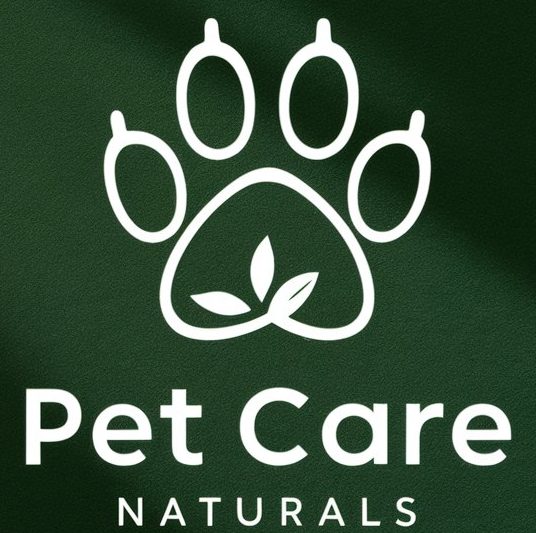
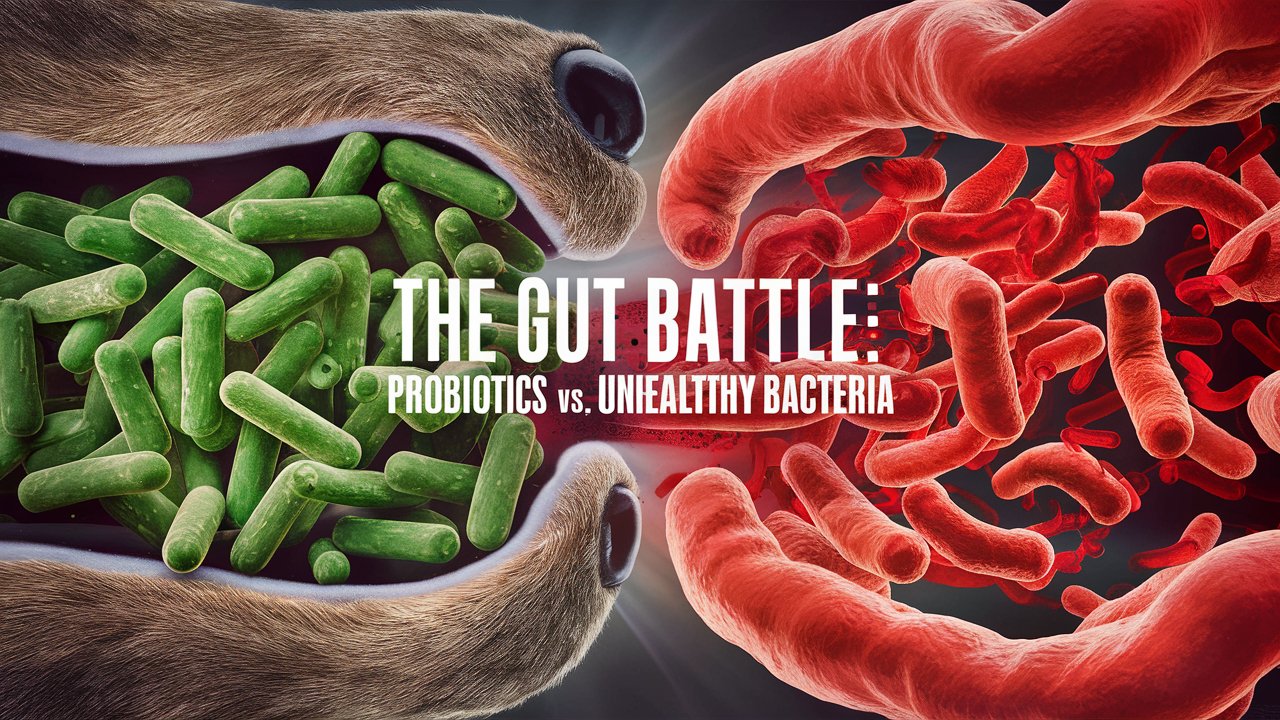



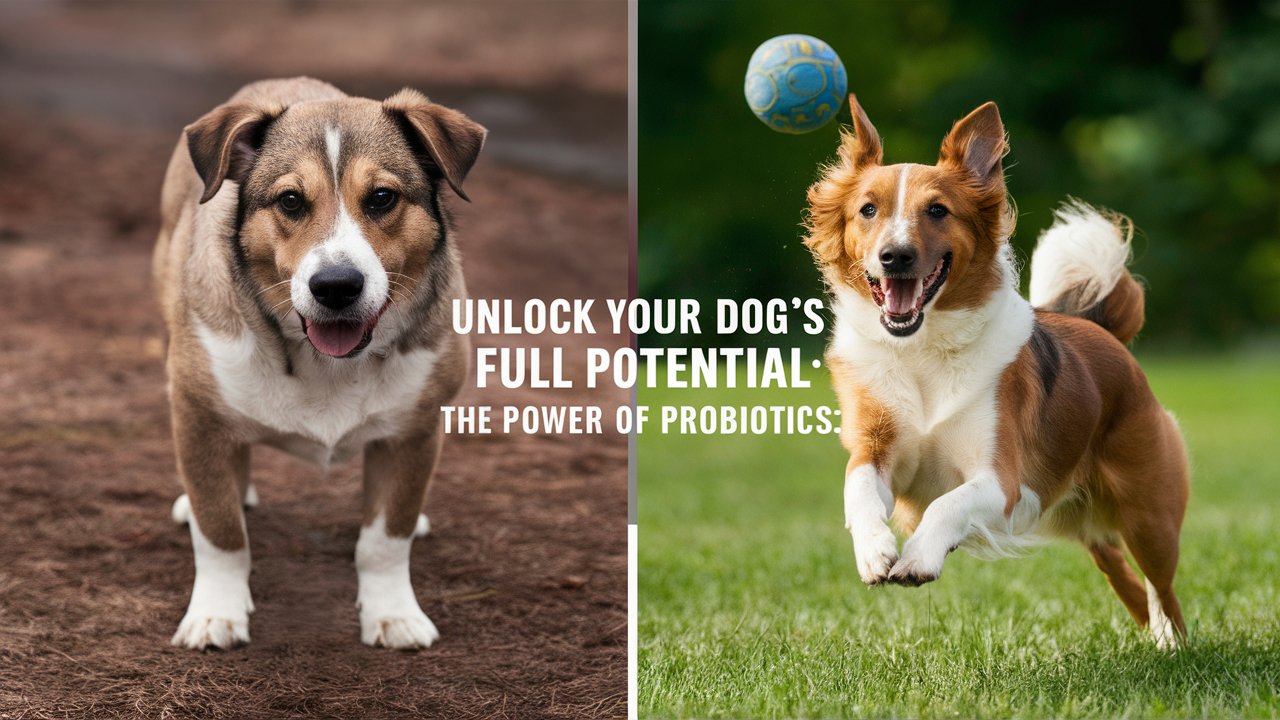
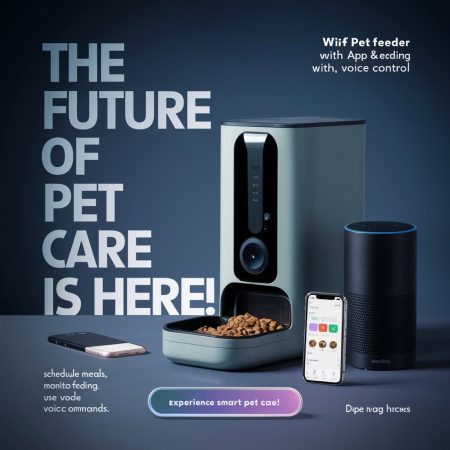


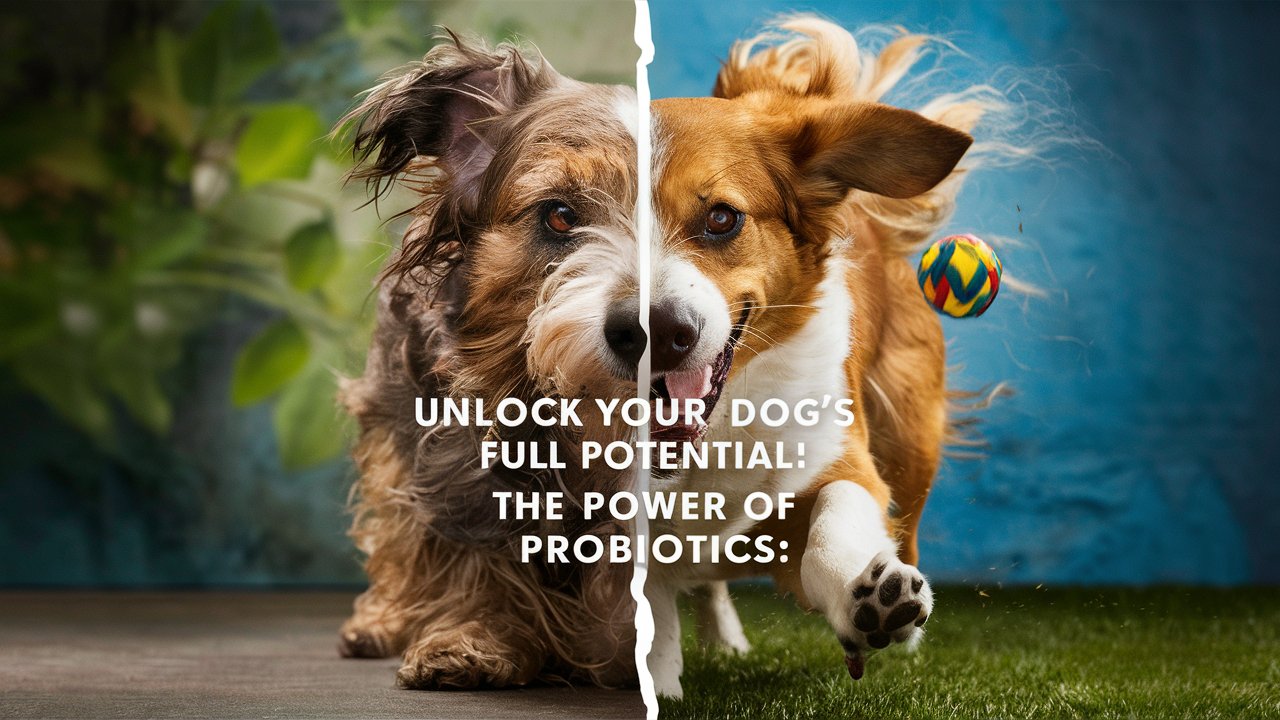
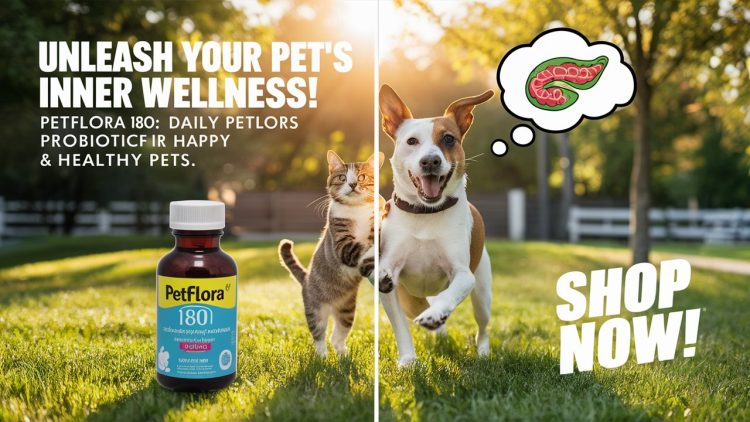
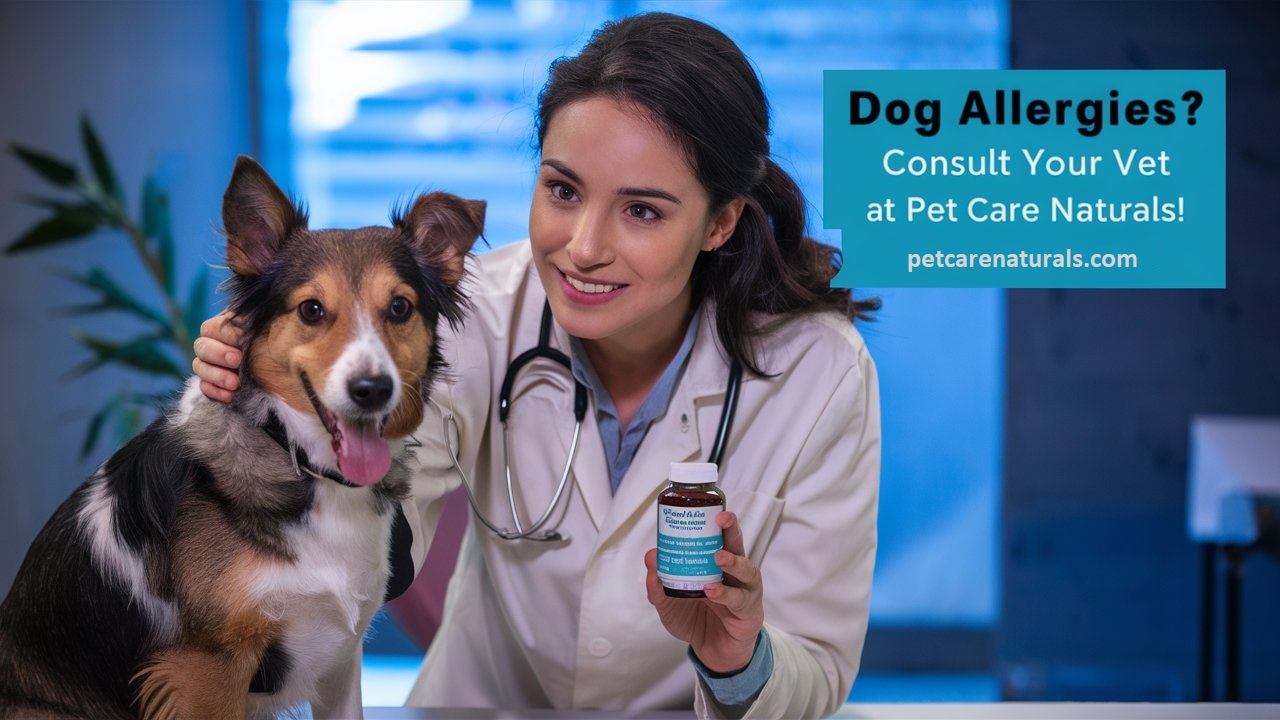
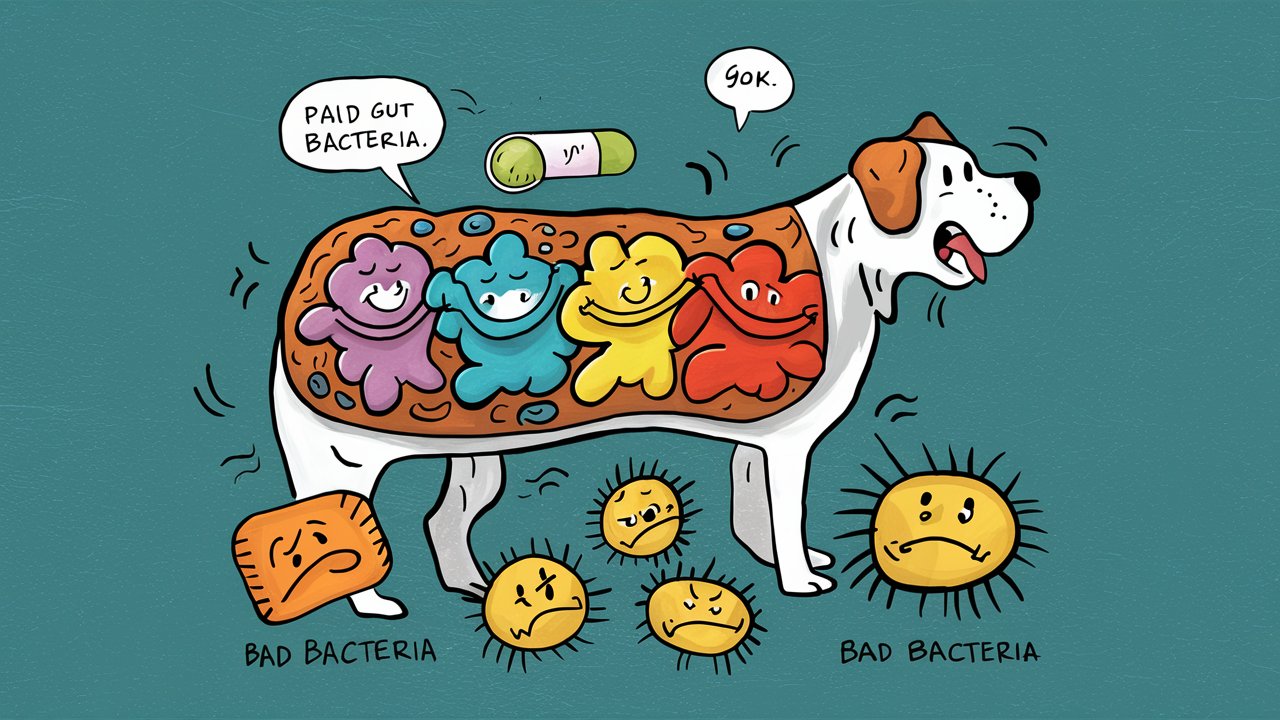
This blog post is a goldmine of information! I’ve been struggling with my dog’s digestion for months, and after reading this, I decided to try probiotics. I’m so glad I did! My dog’s coat is shinier, and she’s full of energy. Thank you for sharing such valuable information!
Great article! I learned so much about the importance of probiotics for my dog’s overall health. I’m definitely going to talk to my vet about adding a probiotic supplement to her diet
I’ve been using the Petcare Naturals Probiotic Brand for my dog for a few months now, and I’ve noticed a huge difference in her digestion. She used to have constant stomach issues, but now she’s so much happier and healthier. This blog post helped me understand why probiotics are so important.